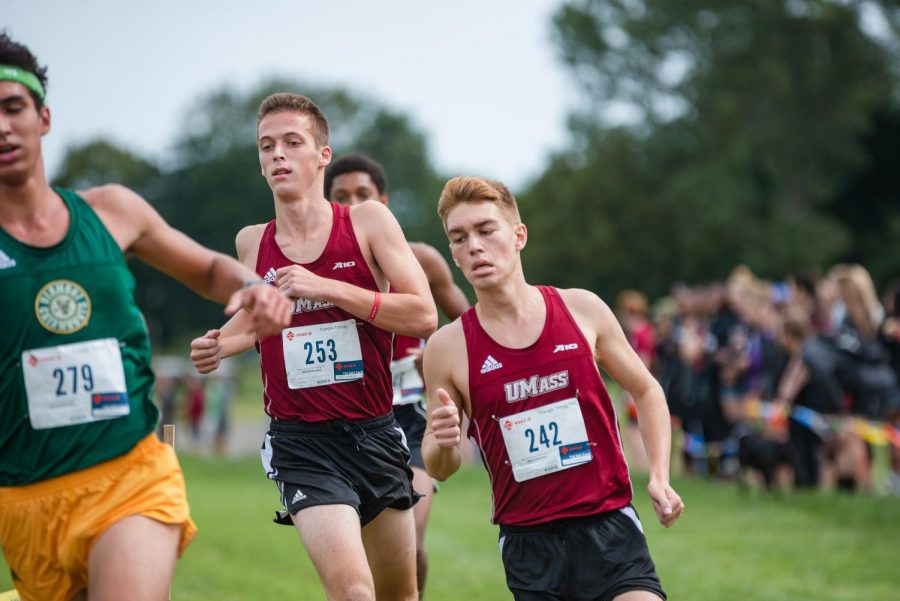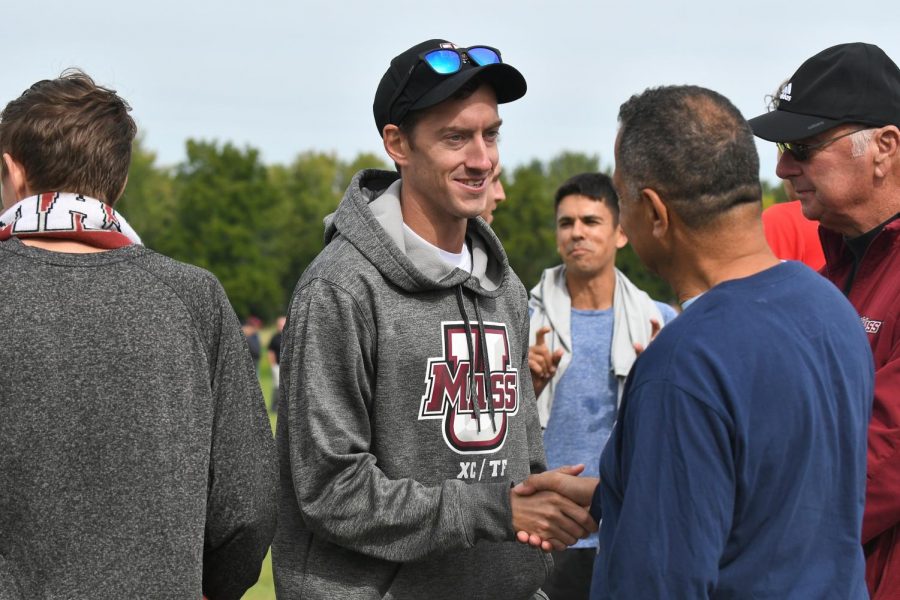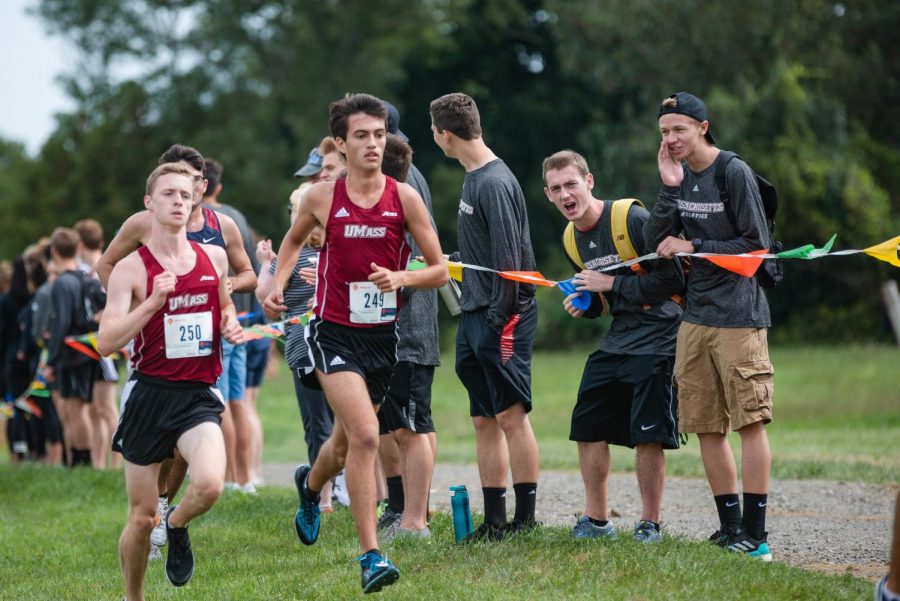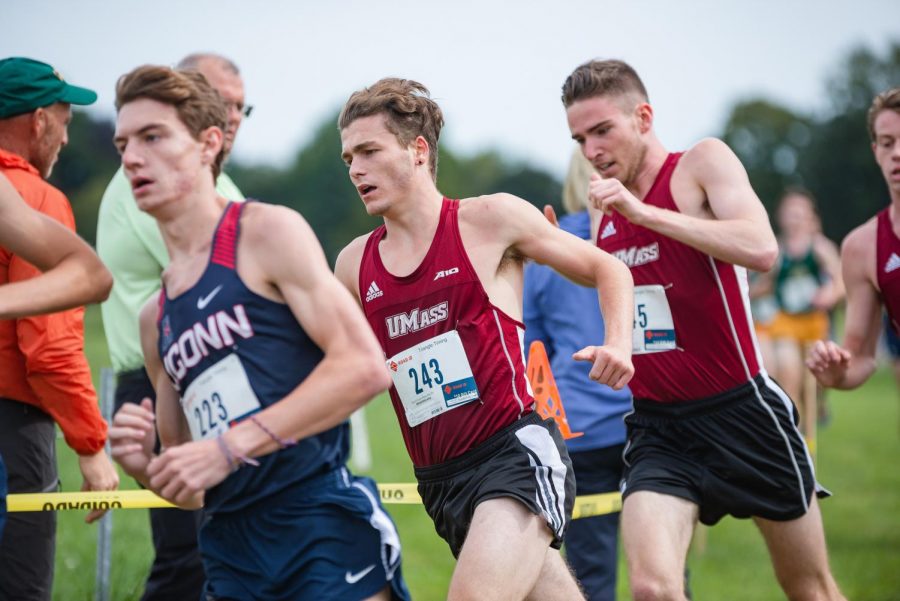
The Massachusetts cross country team concluded its fall season with an eighth place finish out of 16 teams at the IC4A Championship Nov. 22, showing coach Ken O’Brien encouraging signs.
The race, held at Fordham, was open to all college programs in the Northeast. O’Brien said he used the opportunity to offer experience to a young and improving roster.
“We wanted to use the IC4As to let some of the younger runners who didn’t get a chance to race in the championship races get their feet wet,” O’Brien said.
According to O’Brien, it has been the performances in the final few weeks that leaves him hopeful as the team prepares for the indoor and outdoor track seasons.
Before IC4As, the Minutemen competed in the NCAA Regional Championship on Nov. 14, placing 16th out of 39 teams. UMass appeared in the Atlantic 10 Championship the prior week, finishing seventh out of 14 teams.
With only two seniors on the roster, these races served as an opportunity for the Minutemen’s younger runners, according to O’Brien.
“It’s a nice way for those runners to end the season and gain some highly valuable mental growth,” O’Brien said. UMass displayed quality depth in the NCAAs, as the five runners it entered finished within one minute of each other. Junior Ben Groleau led the Minutemen with a time of 31:39.97 in the 10k race and finished 63rd out of 389 runners.
According to O’Brien, UMass possesses the necessary depth to compete, but he’s still searching for a runner who can separate himself from the pack.
“Having one really good front-runner that can finish in the top 10 to 15 of every meet is a luxury everyone would like to have, but I still see our core group of guys as a major strength going forward,” O’Brien said.
Patrick McGowan finishes strong
One of the standouts from IC4As was senior Patrick McGowan, who finished second out of 148 runners with a time of 25:51.4 in a five-mile race in his final cross country race of his collegiate career.
According to O’Brien, McGowan’s impact extends further past his personal success on the course.
“When you have a young team, you sometimes wonder where the leadership is going to come from, and Patrick McGowan really stepped up to be that leader,” O’Brien said.
O’Brien described McGowan as someone who led by example and showed dedication that rubbed off on younger teammates.
McGowan entered the year injured and got off to a slow start. The team struggled to diagnose his injury, but the senior re-gained his form as the season progressed, allowing him to finish on a high note.
Other standouts and turning points
While McGowan saw a positive end to his tenure with the Minutemen, younger performers such as freshman Tyler Hagen and sophomore John Burns provided an optimistic outlook for UMass’ future.
Hagen finished 37th overall (27:02.7) at IC4As while Burns came in at 43rd (27:12.3).
O’Brien said he was encouraged with the overall group performance of his team.
“Sometime between the New England meet and the Atlantic 10 Conference meet I noticed a turnaround in the team’s sense of camaraderie,” O’Brien said. “They raced better because they were racing for each other.”
O’Brien said he is hopeful that this development will continue.
“When they are putting out a better individual effort because they feel closer to the guy next to them, it really shows in the races and it becomes more fun,” he said.
The Minutemen now have six months of indoor and outdoor track seasons to build on their late-season progress. However, the young team is faced with the question of leadership with the loss of experienced runners like McGowan.
O’Brien was hesitant to single anyone out as the next fixed leader for UMass, as he said it is too early to tell. He said that he is not too worried about the question, however.
“It’s not crucial to the team’s success, it’s more the icing on the cake,” he said.
Instead, O’Brien said he is focusing on how the Minutemen’s overall speed will improve with the short-distance races coming up. O’Brien explained that the runners must become comfortable with faster paces for each mile in the longer races by pushing for even faster times in these shorter events.
Due to UMass’ Northeast location, training throughout the winter is more difficult than for other programs located in the South. Stronger sprinters generally race in the warmer climate, leaving schools like UMass to develop stronger long-distance runners, something O’Brien will focus on this winter.
And he’ll do so with a string of encouraging performances fresh in his mind.
Nicholas Souza can be reached at [email protected].
















